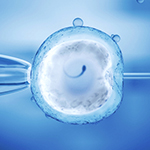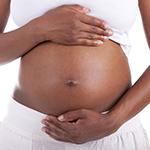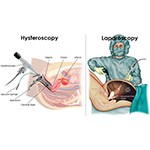ASSISTED CONCEPTION SERVICES
The assisted conception services include basically the following procedures: in vitro fertilization and embryo transfer-IVF-ET, intra-cytoplasmic sperm injection ICSI, intra uterine insemination IUI, pre-implantation diagnosis and screening PGD/PGS. The most common reasons why IVF is done include the following: Tubal blockage, abnormal semen parameters such as low sperm count, the woman not being able to ovulate or release eggs, endometriosis and unexplained
THE IVF CYCLE
For a successful IVF treatment the following steps are required during the treatment
INTRAUTERINE INSEMINATION
Intrauterine insemination (IUI) means putting the sperms into the uterus at the time that the woman is releasing the egg or eggs (ovulating) from her ovaries into the tubes. This way the eggs are placed nearer the openings of the tubes into the uterus, therefore making it easier for the sperms to get to the eggs and fertilize them. Before IUI is done the woman is normally given some medications to make her produce 2-3 eggs. Due to the fact more eggs are available are available for fertilization and the sperms are placed inside the uterus, pregnancy rates tend to be higher than trying to conceive naturally.
Some of the reasons why IUI is done are mild abnormalities of the sperm parameters (the count, movement and shape of the sperms), unexplained infertility, endometriosis, when the male partner is leaving abroad (the sperms are frozen in this case and used for the IUI).
SURROGACY
This means transferring the embryos into the womb for another woman to carry the pregnancy for a couple in which the woman herself cannot carry the pregnancy. Some of the reasons why another woman carries the pregnancy a couple are when the woman who wants a child has not got a womb, has a serious illness which will make it impossible or risky for her to become pregnant or has a genetic condition which can be transferred to child. It should be clearly understood the woman who is carrying the pregnancy has no genetic connection with the child. This is because the eggs did not come from the woman carrying the pregnancy. She is therefore only acting as a carrier of somebody else’s pregnancy.PRE-IMPLANTATION GENETIC DIAGNOSIS/SCREENING
Pre-implantation genetic diagnosis/screening (PGD/PGS) refers to the testing or screening of the embryos to detect abnormalities before they are transferred into the womb (uterus). Small pieces of the embryos (called biopsies) are taken with a laser machine and sent to the laboratory for testing. This ensures that only normal embryos are transferred into the uterus. The main advantage of doing this is that the baby/babies are not likely to have abnormalities and the pregnancies rates are higher because normal embryos are transferred.Some of the reasons why PGD/PGS is done include: Older women more than 35 years undergoing IVF because they tend to have a higher risk of abnormal embryos, Couples who are both carriers of the sickle cell gene, this way they can avoid having a child with sickle cell disease.
RUMA FERTILITY AND SPECIALIST HOSPITAL LTD is the only IVF centre in Ghana running this programme.





